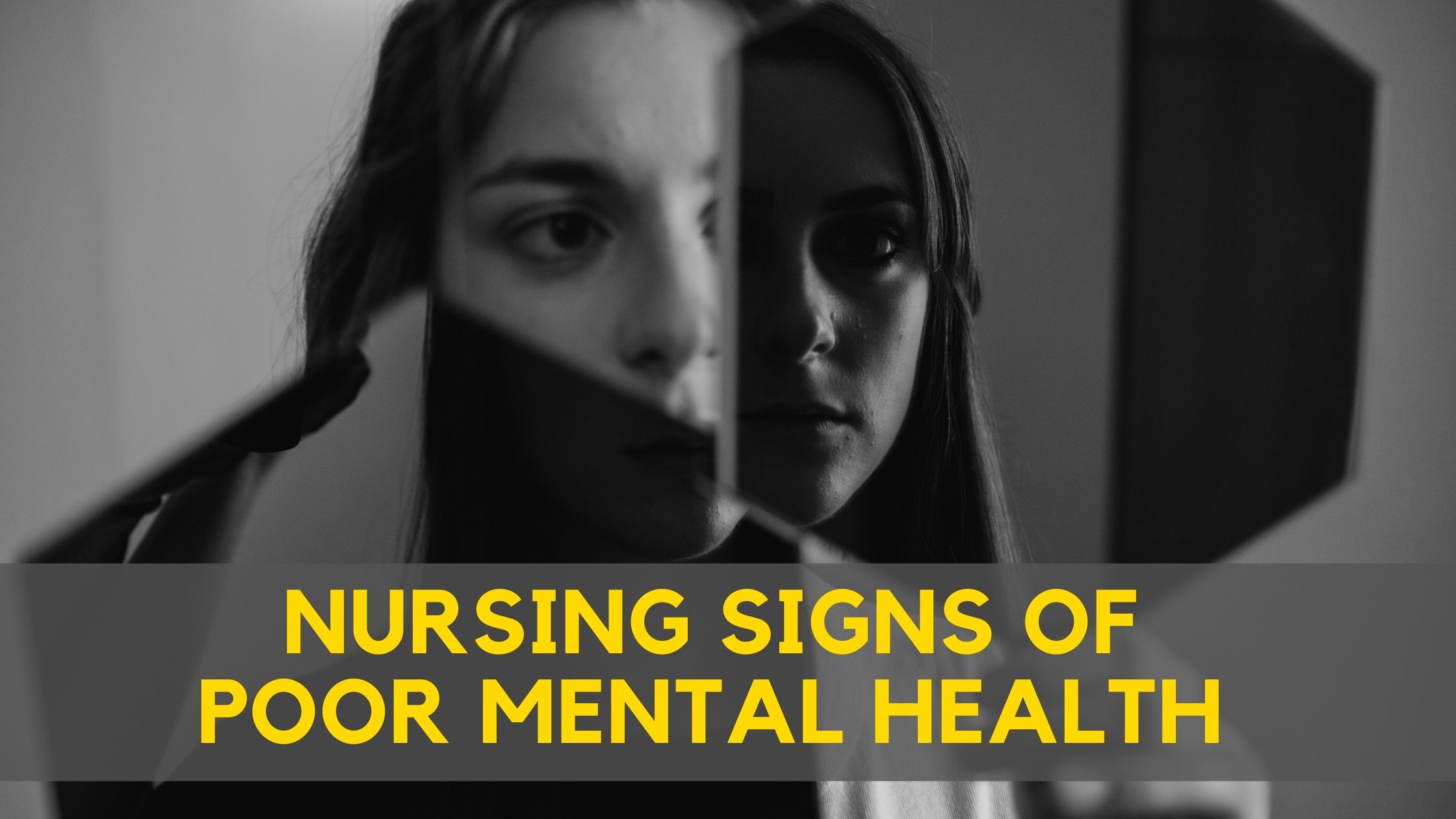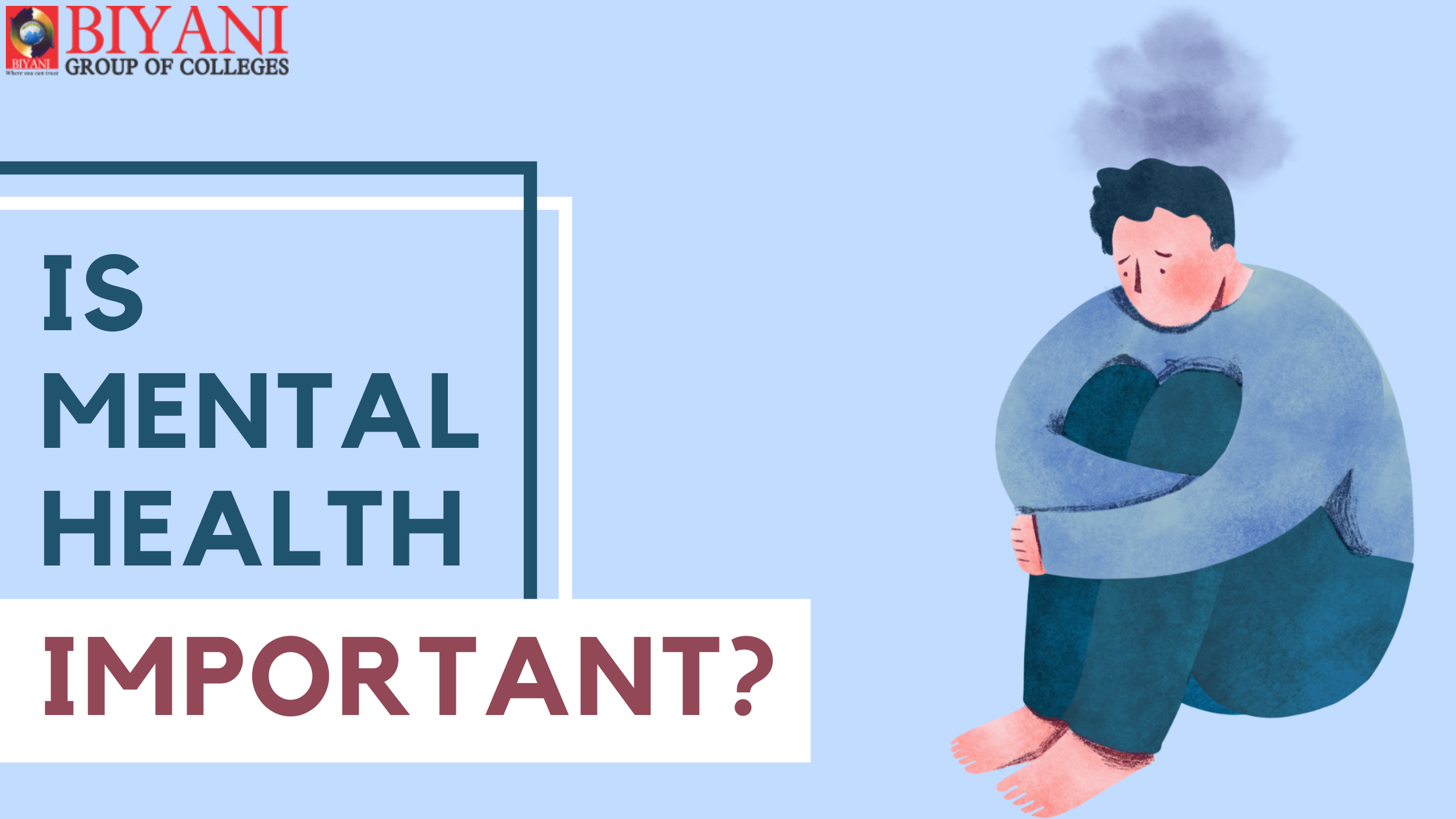Introduction:
Hey there, I hope you’re doing well. Undoubtedly, the covid-19 pandemic has raised the question of whether is mental health important? Likewise, In this blog, you’re gonna read about its meaning, its characteristics, and the signs of poor mental health.
Basically, Mental health is a state of balance between the individual and the surrounding world. Moreover, it is a state of harmony between oneself and others, and co-existence between the realities of the self and other people and the environment.
Meaning:
According to Karl Menninger (1947):
“Mental Health is an adjustment of human beings to the world and to each other with a maximum of effectiveness and happiness.”
Thus, mental health would include not only the absence of Diagnostic labels. Such as schizophrenia and obsessive-compulsive disorder (OCD) but also the ability to cope with the stress of daily living freedom from anxiety. Also, an existing outlook towards and coping with those.
Why is mental health important
- A positive attitude towards self: Certainly, a positive attitude towards self includes an objective view of self including knowledge. Likewise, it includes acceptance of strengths and limitations. Though, the individual feels a strong sense of personal identity and security in the environment.
- Growth, development, and the ability of self-actualization: Both growth development and the ability for self-actualization indicators correlate with each level of development.
- Integration: Particularly, it includes the ability to adaptively respond to the environment and the development of the philosophy of life. Therefore, both of these help the individual to maintain anxiety in stressful situations.
- Autonomy: Basically, it refers to the individual’s ability to perform in an independent self-directed manner. Therefore, the individual makes choices and accepts responsibility for the outcomes.
- Perception of reality: It includes the perception of the environment without distortion as well as the cope for empathy and social sensitivity.
- Environmental mastery: Significantly, the environmental mastery indicator suggests that the individual has achieved a satisfactory role within the group, society, and environment. Moreover, he is able to love and accept the love of others.
Characteristics of Mentally Healthy persons:
- Firstly, the ability to make adjustments.
- Secondly, the senses of personal worth and feeling worthwhile and important.
- Solving one’s problems largely by his own efforts and making his own decisions.
- A sense of personal security and feeling secure in a group.
- Showing emotional maturity in his behavior.
- Developing a philosophy of life that gives meaning and purpose to his daily activities.
- Lastly, developing a capacity to tolerate frustration and disappointment in his daily life.
Visit gurukpo.com for FREE Study material

Nursing Signs of Poor Mental State:
Generally, symptoms of mental disorders vary depending on the type and severity of the condition.
Thus, some general symptoms that may suggest a mental disorder include:
- In younger children:
- Change in school performance
- Poor grades despair strong efforts
- Excessive worrying or anxiety
- Hyperactivity
- Persistent nightmares
- Persistent aggressive behavior
- Frequent temper tantrums.
- Adolescence/In older children:
- Abuse of drugs or alcohol
- Inability to cope with daily problems and activities
- Changes in sleeping and eating habits
- Excessive complaints of physical problems
- Skipping school, stealing or damaging property
- Intense fear of gaining weight
- A long-lasting negative mood is often along with the poor aptitude and thoughts of death.
- The frequent outburst of anger.
- In adults:
- Confused thinking, long-lasting sadness, or irritability
- Extreme high and low mood
- Excessive fear, worrying, and anxiety
- Social withdrawal
- Changes in eating and sleeping habits
- Strong feelings of anger
- Delusion or hallucination
- Increasing inability to cope with daily problems and activities
- Thoughts of suicide
- Many explained physical problems
- Abuse of drugs or alcohol.
Blog by: Laxmi Pharaswal
Department of Nursing
Thank you for reading the blog. Kindly, share this with everyone as everyone should be aware of their mental health. Keep Reading & Keep Sharing.

